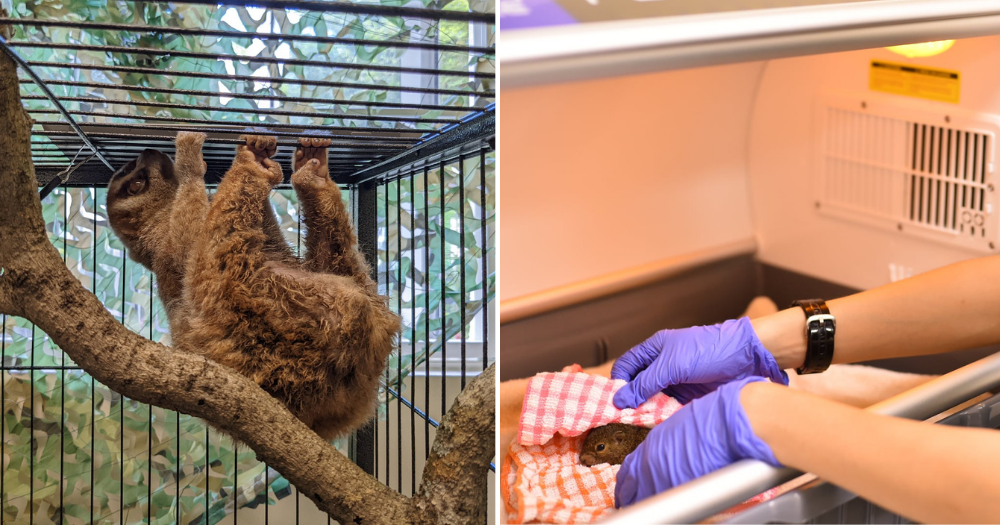Follow us on Telegram for the latest updates: https://t.me/mothershipsg
A new Centre for Wildlife Rehabilitation (CWR) will rescue and provide care and treatment for injured, lost, and abandoned wildlife including mammals, reptiles and birds in Singapore.
Opened by the National Parks Board (NParks) on Feb. 25, the CWR will strengthen the country's wildlife management and conservation efforts and complement the work and expertise of wildlife rescue partners such as ACRES and Mandai Wildlife Group.
Well-equipped facilities
The 1,250 sqm CWR is located at Lim Chu Kang, according to The Straits Times.
It houses a range of veterinary facilities such as holding, treatment, and surgery rooms equipped with x-ray equipment, an incubator, and an oxygen cage.
NParks' media release stated that the CWR is staffed by veterinarians who have been trained to handle wildlife found in Singapore.
Specialised housing facilities at the CWR, which are customised to replicate the natural environment for different animals, also better prepare the wildlife for release.
These housing facilities incorporate environmental enrichment in their designs to "allow the animals to express their natural behaviour" and reduce their stress in captivity.
These enable NParks to provide in-house diagnosis, treatment and rehabilitation for injured or ill wildlife at the CWR.
Supporting fight against illegal wildlife trade
Exotic wildlife species seized from the illegal wildlife trade will also be cared for and rehabilitated at the centre while investigations and proceedings are carried out following raids and sting operations.
The CWR thus plays a key role in supporting Singapore's efforts to combat the illegal wildlife trade.
Singapore is a transit hub for illegal wildlife trade, but efforts have been made to impose stiffer penalties against perpetrators.
Other purposes
The CWR will also contribute to existing biosurveillance capabilities by complementing the NParks' existing biosurveillance facilities, such as the Animal Quarantine Centre and Centre for Animal & Veterinary Sciences.
Animals admitted into the CWR are examined and tested for diseases that are important both to wildlife health, and the health of domestic animals and humans.
This will help manage emerging threats of animal and zoonotic diseases.
Additionally, the CWR will serve as a training venue for staff from wildlife management companies to learn about the handling of wildlife and stay updated on best practices in wildlife handling.
Top photo from NParks / FB
If you like what you read, follow us on Facebook, Instagram, Twitter and Telegram to get the latest updates.

